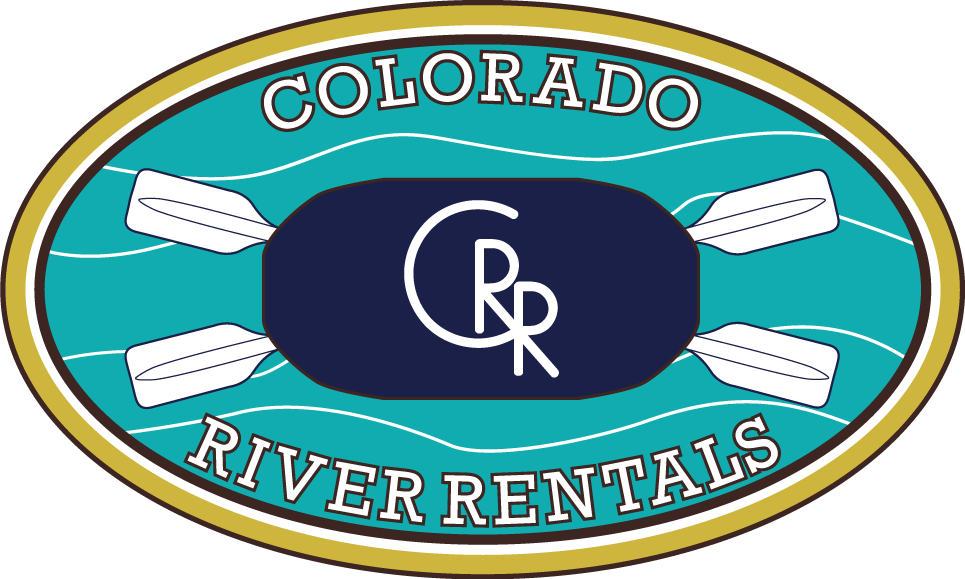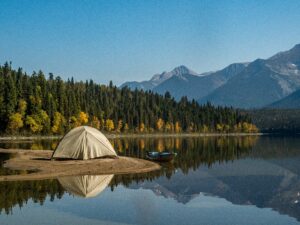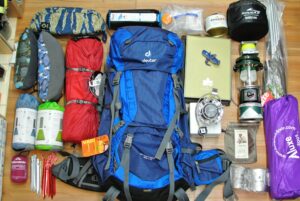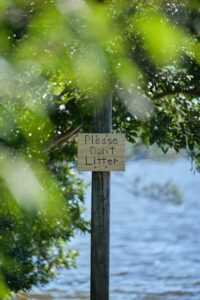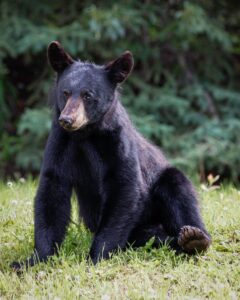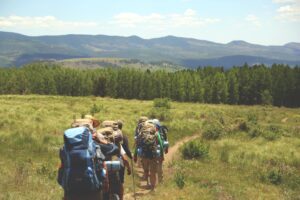How to Wildlife-Proof Your Campsite

Camping in the wilderness is an awesome adventure that teaches you many necessary and important skills. Setting up camp and wildlife-proofing your campsite is one of the most important, no matter where you are camping! Here in Colorado and especially camping alongside water like the Upper Colorado River, you will surely experience the area’s beautiful wilderness, including the wildlife that call it home.
In Colorado, we additionally often find ourselves camping or backpacking in bear country. The black bears that call the area home do not tend to be aggressive; however, if they do smell food, they may become aggressive, intent on scrounging up a meal. For this reason, it is necessary to wildlife-proof your site in order to keep you and your group safe and protect wildlife against harmful contact.
Camping is a means to get away and unwind, but first, there are some key steps to put in place before you can sit back, relax, swim, or cast your line. Below are some effective techniques and tips to be aware of to keep yourself safe, as well as protect wildlife from endangerment; after all, we are just stopping by in their home!
1.Bring the Right Gear
Some key equipment that can be used for safety are bear bags, bear spray, blow horns/whistles, and heavy-duty flashlights for the night. Bug spray and ammonia are also great deterrents. Make sure you know how to use all gear before your trip.
2. Follow Leave No Trace Principles
Especially when it comes to wildlife, it is important to dispose of all waste properly and pack everything out that you packed in. Litter or food scraps may attract animals to your site and increase your chances of encountering them. The National Parks Service additionally recommends that you wash dishes at least 200 feet away from streams or lakes and dump all dirty water far from your campsite.
3.Trash and Food Storage
When sleeping or away from your site, store trash and food in either your locked vehicle or in an odor-proof bear bag. A bear bag is sack that you tie up in a tree, high enough so bears cannot get to it. It should be hung or stored at least 150 to 200 feet away from your sleeping area. A bear canister is an even better option, as this completely seal-proof container prevents bears from smelling your food, and therefore they will not go in search of it.
Learn how to choose a bear canister and which might be best for your camping adventure. If you are car camping, it is also okay to lock your food in your car. Remember that bears and other critters can smell more than food, so toiletries and anything scented should also be placed out of reach.
4. Understand your Environment
Learning about the diverse types of animals in your area will help you know which creatures to keep an out for. Colorado is home to numerous species of wildlife. Some to keep an eye out for are:
Bears
Big Horn Sheep
Deer
Moose
Elk
Raccoons
Rabbits
Squirrels/Chipmunks
Mosquitos
Mountain Lions
Birds of Prey- Golden Eagles
Fish
Most animals are not confrontational unless they smell food or are provoked, yet it is important to be aware of which species you may encounter on your camping trip. Being prepared with this knowledge can help you learn the necessary steps to take if you do encounter wildlife at your campsite. For instance, if camping in bear country, you will need to come prepared with bear spray and a bear canister or bag and understand how to use them. Chances of seeing a bear are rare, but if you are equipped with the correct knowledge and tools, you avoid panic if a bear does appear.
5.Know What to Do in a Wildlife Encounter
In Colorado, this likely applies to bear encounters. Bears are rarely aggressive but may approach if they sense food, or they may become confrontational if you encroach too close to a mother and her cubs. Stay calm and do not approach the bear. If it does approach you, stand your ground, make noise, and be prepared to use your bear spray. Read more from Colorado Parks & Wildlife about how to handle a bear encounter.
Camping, backpacking, and hiking in Colorado’s outdoors are truly unique and wonderful experiences yet ones that necessitate preparedness and understanding of our natural environment. Once you are equipped with this knowledge and any necessary gear, you will have a stress-free and exciting experience camping in Colorado!
Written by Sarah Wagner, Contributing Member of the Sales and Marketing team
Edited by Rosa Canales, Marketing Specialist
